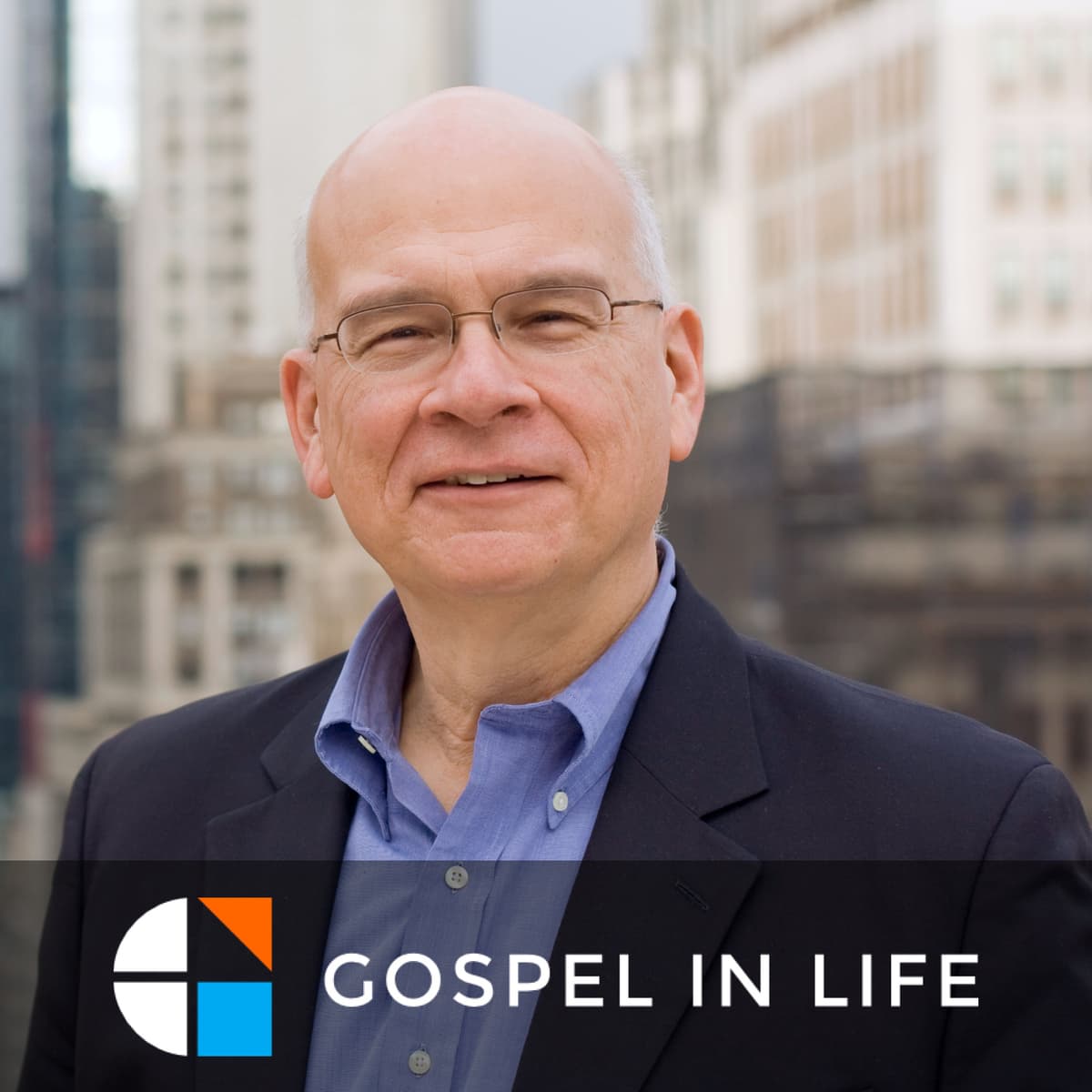Podcast Summary: "Money and Your Faith" – Timothy Keller Sermons Podcast by Gospel in Life
Episode Information:
- Title: Money and Your Faith
- Host/Author: Tim Keller
- Release Date: April 18, 2025
Introduction: Embracing a Life of Faith
In the episode titled "Money and Your Faith," Pastor Tim Keller delves into Hebrews 13:1-6, exploring how genuine faith, anchored in the work of Christ, empowers believers to navigate life's uncertainties with courage, hope, and composure. Keller emphasizes the concept of a "life of faith," where believers master circumstances rather than being mastered by them. He sets the stage by linking earlier discussions from Hebrews 11, focusing on living a powerful life grounded in faith.
Notable Quote:
"The Bible, however, calls that a life of faith."
(02:00)
1. Hospitality: Loving Strangers as Part of Faith
Keller begins by unpacking the first form of openness: hospitality. He challenges the contemporary, often superficial understanding of hospitality, urging believers to genuinely entertain strangers. Drawing from Hebrews 13:2, he explains that hospitality transcends mere social niceties, embodying the Greek concept of philoxenon—the love of strangers.
Key Points:
- Definition: Hospitality involves opening one’s home and life to those who are different, breaking away from the privatized lifestyle typical of places like New York City.
- Practical Application: Keller recounts a church example where newcomers were warmly invited into the community, fostering genuine connections and demonstrating faith in action.
Notable Quote:
"The word that is translated, entertain strangers, is a Greek word, philoxenon, which is the exact opposite of xenophobia."
(05:15)
2. Social Associations: Standing with the Marginalized
The second aspect of openness pertains to social associations. Keller interprets Hebrews 13:3, which urges believers to remember those in prison and those who are mistreated as fellow sufferers. This directive calls for active solidarity with the marginalized, breaking free from societal safety zones.
Key Points:
- Identification with the Oppressed: Believers are encouraged to step out of their comfort zones to support and stand in solidarity with those facing injustice and hardship.
- Critique of Cultural Leaders: Keller critiques both conservative and liberal cultural elites for their inadequate responses to marginalized communities, highlighting the unique role Christians can play in bridging gaps.
Notable Quote:
"A person who's not afraid of life anymore, a person who's living a life of faith... you master circumstances instead of being mastered by them."
(08:40)
Additional Insight: Keller references John MacArthur’s commentary on Hebrews to underscore the importance of not over-spiritualizing Christianity, advocating instead for tangible actions that reflect faith through social engagement.
3. Financial Openness: Reimagining Our Relationship with Money
The final form of openness discussed is financial generosity. Keller contrasts the sacredness attributed to sex versus money in Christian teaching, highlighting a reversal of societal values.
Key Points:
- Redefining Sacredness: While sex is treated as sacred and reserved for marriage, money should not be idolized. Instead, Christians are called to be generous with their finances.
- Generosity as a Mark of Faith: Keller emphasizes that a life of faith is characterized by joyful generosity, going beyond the Old Testament tithe to a culture of giving that defies secular norms.
- Contentment and Control: True contentment frees believers from the love of money, allowing them to live generously without fear or attachment.
Notable Quote:
"Money becomes nothing that big a deal. It loses its holiness, it loses its sacredness."
(15:30)
Practical Applications: Living Out Faith in Daily Life
Keller ties the teachings back to the community at Redeemer Presbyterian Church, encouraging members to embody these principles of openness. He envisions a generation of believers who actively engage with and uplift marginalized communities, redefining cultural leadership through faith-driven actions.
Key Points:
- Breaking Stereotypes: Christians are encouraged to defy both conservative and liberal stereotypes by showing genuine care and support for all individuals, regardless of their social standing.
- Generosity in Action: Practical examples include dedicating significant portions of income to charity and community support, demonstrating trust in God’s provision.
Notable Quote:
"Only in Christ am I in control. Only when I lose control to him am I free."
(20:10)
Conclusion: Anchoring Life in God’s Promise
Keller concludes by reinforcing the foundational promise from Hebrews 13:5—“Never will I leave you, never will I forsake you.” This assurance empowers believers to embrace openness in all aspects of life, trusting in God’s unwavering presence and provision.
Key Points:
- Foundation for Openness: Understanding and internalizing God’s promise allows believers to live generously without fear of loss or abandonment.
- Invitation to Trust: Keller challenges listeners to trust in God’s faithfulness, encouraging them to test and rely on His promises through acts of generosity and compassion.
Notable Quote:
"Do not let your money control you. Instead, let it fly open, let it fly into the lives of others. Then we'll be truly free."
(24:55)
Final Thoughts
"Money and Your Faith" offers a profound exploration of how financial generosity, hospitality, and meaningful social associations are integral to living a life of faith. Tim Keller effectively bridges theological insights with practical applications, encouraging believers to embody Christ-like love and generosity in every facet of their lives.
Recommendation: For a deeper understanding of these principles, listeners are encouraged to explore Keller’s book, Hope in Times of Fear, and engage with additional resources available at www.gospelinlife.com.
This summary encapsulates the key discussions and insights from Tim Keller's sermon "Money and Your Faith," providing a comprehensive overview for those who have not listened to the episode.
